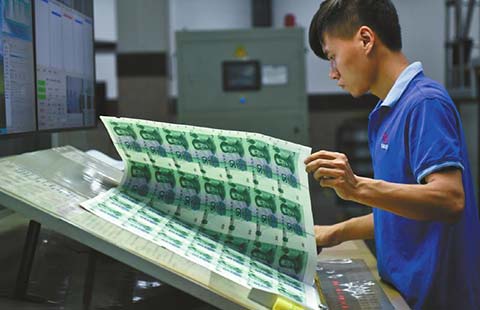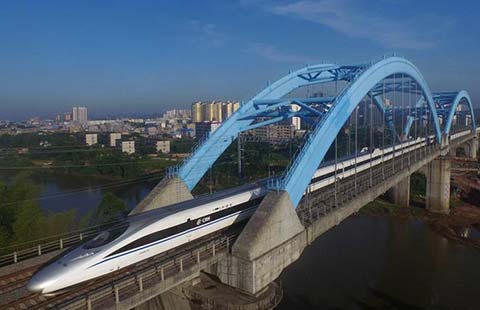China, US help JLR's first post-Brexit month to record sales
(Xinhua) Updated: 2016-08-09 10:22
 |
|
The new Range Rover Evoque is seen at the Jaguar-Land Rover exhibition booth during the International Motor Show (IAA) in Frankfurt, September 14, 2011. [Photo/VCG] |
LIVERPOOL - Fears of post-Brexit disasters were swept aside Monday as economists commented on sales figures from Jaguar Land Rover (JLR) as the shape of things to come.
JLR figures revealed record sales, boosted by high volumes of cars being sold in China and the United States.
The July figures cover the first complete month of sales following the June 23 referendum when Britain voted by 52 percent to 48 percent to quit Europe.
Just under 44,500 of JLR's vehicles were sold in what was a record July for the British auto firm, a rise of 34 percent over July 2015. The company said from its headquarters near Coventry that sales in China in July were up 64 percent on the same month last year, with sales in the United States 51 percent higher.
Commenting on the performance, Andy Goss, Jaguar Land Rover Group Sales Operations Director said: "This has been another record month for Jaguar Land Rover with impressive sales across both of our brands. The Discovery Sport and the Jaguar XE have delivered record July sales performances and the Jaguar F-PACE is in popular demand with our customers, reflecting the global appeal of our strongest ever vehicle line up."
In the first seven months of this year JLR have sold 336,052 vehicles, up 23 percent on the same period last year.
It prompted one on-line business site to comment Monday: "Vehicle manufacturer Jaguar Land Rover has banished thoughts of a post-Brexit slump by announcing record sales figures for July."
Peter Stoney, senior fellow in economy at the University of Liverpool, told Xinhua Monday: "JLR can capitalise on the free trade opportunities that Brexit should create; it's up to the likes of Liam Fox (newly appointed International Trade Secretary) to get us there. The depreciation of sterling is a start, but there's much, much more to be done with regard to removing trade barriers."
Stoney's comments came on the day the monthly academic Liverpool Investment Letter (LIL) was published, taking a detailed look at post-Brexit Britain.
It is published by the Liverpool Macroeconomic Research Group in association with Cardiff Business School, and edited by renowned economist Professor Patrick Minford.
In an article headlined "The Post-Brexit Fandango", the LIL states: "The doom and gloom brigade have been out in force, self-justifying their pre-Brexit forecasts of disaster and of a terrible second quarter due to Brexit uncertainty."
"The post-Brexit surveys have combined 'expectations' of falling orders with the actuality of output and orders remaining about the same. The combination of a 15 percent fall in the effective exchange rate and a Bank cut in interest rates has provided a huge monetary stimulus which makes a steady-as-she-goes outlook the most probable. The big long term issue is over the choice of genuine Brexit versus a variety of status quo options," says the LIL.
Stoney, like Minford, says Britain should leave the EU as quickly as possible and switch to unilateral free trade with the world, to "reap huge gains from eliminating EU protectionism and regulation".
Former deputy prime minister in the previous coalition government, Liberal Democrat Nick Clegg, said Monday politicians in the House of Commons should be given a vote on when a Brexit plan is triggered and again when negotiations are complete.
In the pro-remain newspaper European, Clegg said: "We must reinsert parliament and the discretion of MPs into the process. Much of the 'take back control' narrative of the Brexiteers hinged on the need to reclaim our parliamentary sovereignty. When the autumn comes the Government must produce a Brexit plan and put it to parliament. We must be given a vote of consent before Article 50 is triggered and again when the negotiations are complete."
Article 50 is the EU mechanism that will start a two-year irreversible exit strategy for Britain.
- China, US help JLR's first post-Brexit month to record sales
- China producer prices down 1.7% in July
- China consumer prices up 1.8% in July
- Chinese engineering giant to design mega Padma bridge corridor
- China to crack down on illegal rare earth mining
- Farm produce prices post declines last week
- Chinese firm signs $4.44b deal to build railway in Bangladesh
- China's Midea to hold about 95% stake in German robotics firm

















